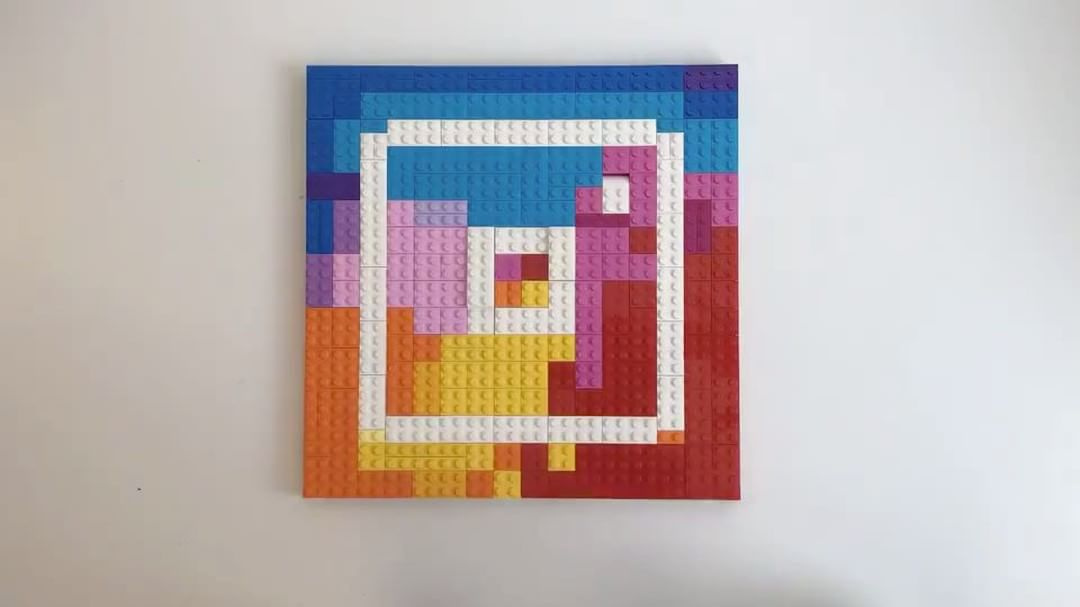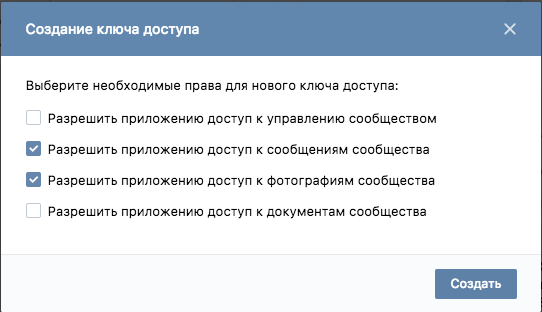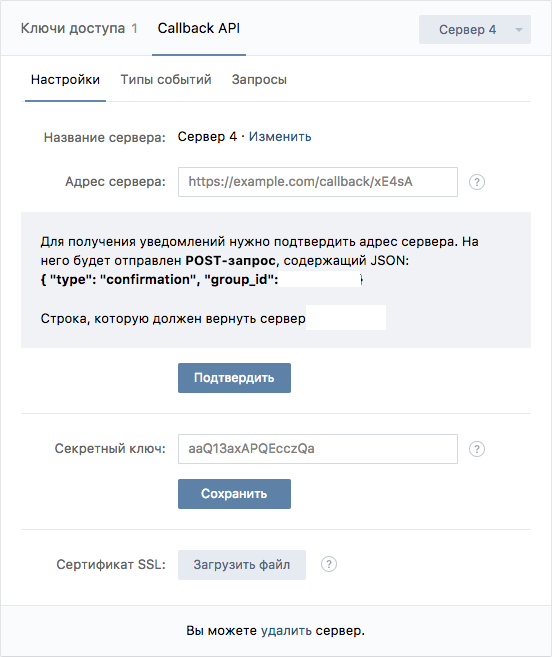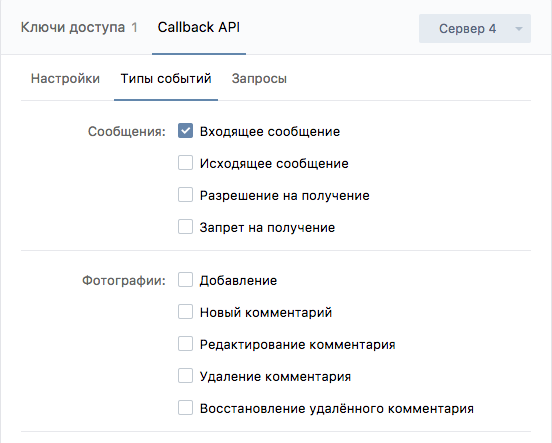Download photos from Instagram using the Vkontakte bot

In this post, we’ll write a Vkontakte bot that accepts a link to a photo from Instagram, and sends the photo back.
We create a group in Vkontakte and in the community settings we include the messages:
"Community Management" - "Messages".
To begin, try to create an "echo-bot."
You will need the following libraries to work.
falcon==1.2.0 gunicorn==19.7.1 py-vkontakte==5.53.4 requests==2.18.3 We need to get TOKEN, with which we can send messages on behalf of the community:
"Community Management" - "Settings" - "Working with API" - "Access Keys" .

You can receive new messages in two ways: "Callback API" or "Long Poll".
Will use the "Callback API".
"Callback API" sends data in json-format.
{ "type":"message_new", "object":{ "id":1, "date":1499441696, "out":0, "user_id":1, "read_state":0, "title":" ... ", "body":"Hello" }, "group_id":1, "secret":"111111" } In the "Callback API" you must specify the server address. We will use falcon as a server
"Community Management" - "Settings" - "Working with API" - "Callback API".


Confirm the server for the "Callback API":
import falcon GROUP_ID = "YOUR GROUP ID" CONFIRMATION = "YOUR CONFIRMATION CODE" class Bot(object): def on_post(self, req, resp): if req.content_length: data = json.loads(req.stream.read()) if "confirmation" == data.get("type") and GROUP_ID == data.get("group_id"): resp.data = CONFIRMATION application = falcon.API() application.add_route('/', Bot()) Now we will write a handler for receiving new messages and sending them. To send a message will use the library py-vkontakte .
# .... import vk api = vk.Api(TOKEN) # group = api.get_group(GROUP_ID) class Bot(object): def on_post(self, req, resp): # .... user_id = data.get('object').get('user_id') text = data.get('object').get('body') if "message_new" == data.get("type"): group.send_message(user_id, text) resp.data = b"ok" # .... In order to send Vkontakte that we have successfully read the message, you need to send the string "ok".
"Echo-bot" is ready to run it
gunicorn bot:application We write a bot that sends photos from Instagram
The Instagram documentation says that if you add / media to https://instagram.com/p/fA9uwTtkSN/ , then the JPG file will return.
To begin, we will write a function that will verify that the message sent by the user is a link to the Instagram website.
from urllib.parse import urlsplit def is_instagram_link(self, link): url = urlsplit(link) if url.netloc in ["www.instagram.com", "instagram.com"]: return True return False Let's write a function that adds to the / media link and downloads this jpg
import io from urllib.parse import urljoin import requests def get_instagram_photo(self, instagram_photo_link): url = urljoin(instagram_photo_link, 'media/?size=l') response = requests.get(url) if not response.ok: raise ValueError() file_like = ('photo.jpg', io.BytesIO(response.content)) return file_like ? size = l is a parameter that indicates the size of the returned jpg
if not response.ok: - the link may not be correct, we need to check it
file_like = ('photo.jpg', io.BytesIO (response.content)) - we prepare the received JPG for sending
Add is_instagram_link and get_instagram_photo to the class Bot and change the logic of work, when a new message arrives send JPG.
class Bot(object): def on_post(self, req, resp): # .... if "message_new" == data.get("type"): if not self.is_instagram_link(message_text): group.send_messages(user_id, message=' instagram.com') else: try: instagram_photo = self.get_instagram_photo(instagram_photo_link=message_text) group.send_messages(user_id, image_files=[instagram_photo]) except ValueError: group.send_messages(user_id, message=' , ') resp.data = b'ok' # .... Additional links:
')
Source: https://habr.com/ru/post/335828/
All Articles